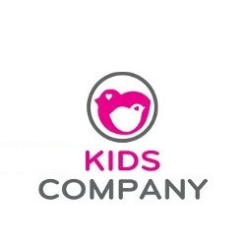Kids Company reported a deficit in free reserves in six of the past ten years, despite receiving more than £90m in unrestricted income over the last decade - almost 80 per cent of all funding.
Earlier this month Kids Company closed its doors because it could not pay its debts as they fell due. The Insolvency Service was appointed to liquidate the charity last week.
The charity's founder, Camila Batmanghelidjh, said the charity was so short of cash because it was not able to build reserves. She said this was due to a combination of growing demand for services and most of the charity's income being restricted.
But a Civil Society News analysis of accounts shows that £90m of the charity's £116m income in the last decade was unrestricted - 78 per cent.
The charity's most recent accounts show free reserves of £434,000 - less than a week's expenditure, but still the highest level ever reported in accounts.
This means the charity would be unable to cope with any sizeable disruption in its cash flow.
A report last year for the Cabinet Office, prepared by accountants PKF Littlejohn, suggested that lack of cash was the biggest danger to the charity.
Unrestricted or free reserves is the money a charity has set aside that can be drawn on in an emergency.
Most charities which face low reserves do so because they have small margins on contracts, because income is restricted to certain projects, or because overall income is falling. But this was not the case at Kids Company, where income rose steadily every year.
Over the last ten years the percentage of its income that was unrestricted only dipped below 50 per cent once, in 2005, and peaked at 90 per cent in 2011.
Batmanghelidjh has previously claimed, in an interview with Civil Society News, that the organisation was unable to build up reserves because most of it was restricted and the charity faced escalating demand during the recession.
She said: “We’ve wanted to build reserves but we’ve never had additional money for it. Our growth is quite misleading. People have given us money and wanted something for it. We’ve never had free money. Also, we’ve never had money we can set aside for reserves because of the sheer demand.
“When we wanted to consolidate, the economic downturn came, and the flood of kids at our doors was phenomenal.”
Best practice is usually to set reserves at between three and six months’ expenditure, depending on the nature of the charity’s activities.
In 2003 the charity reported a free reserves deficit of nearly £500,000. In those accounts Kids Company said it aimed to build up six months' expenditure.
The trustees' report said: “The directors have agreed a long-term policy whereby unrestricted funds not committed for a specific purpose should be maintained at a minimum of six months of annual resources expended.”
In 2013 the charity had an expenditure of nearly £23m, meaning six months’ reserves would have been £11.5m and three months’ would have been £5.7m.
Staff costs
Kids Company saw a huge increase in the number of people it employed over the last ten years.
Headcount went from 44 full-time equivalent employees to 495 in 2013 – an increase of more than 1,000 per cent over the time frame.
In 2003 Kids Company’s total staff cost, including salaries, social security, recruitment, and training, was £1.5m and by 2013 it was £15.3m – an increase of 920 per cent.
In 2013 wages and salaries accounted by £11.8m, making the average salary at Kids Company £23,800.
Staff costs accounted for between 53 per cent and 67 per cent of total expenditure over the decade.









